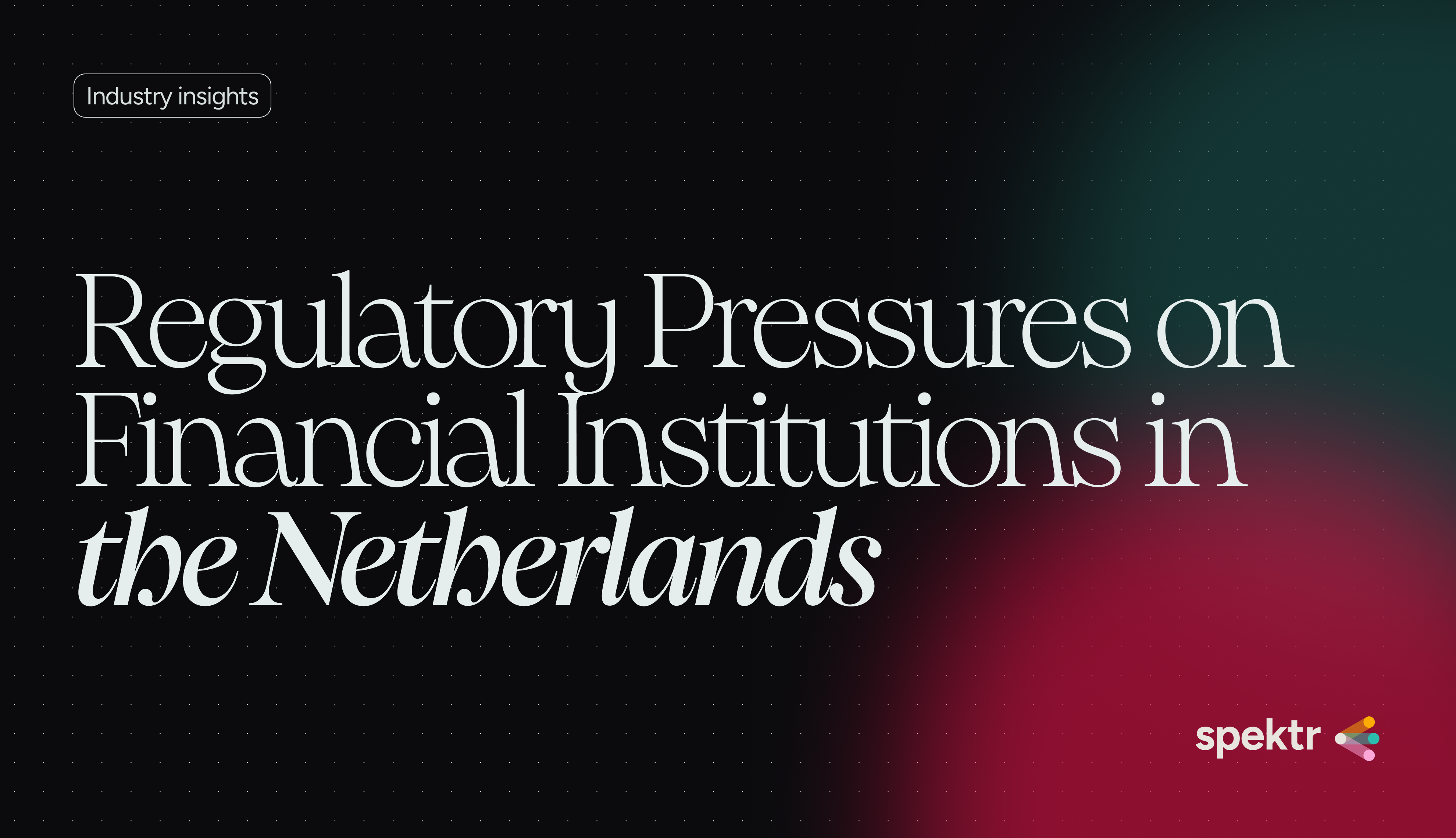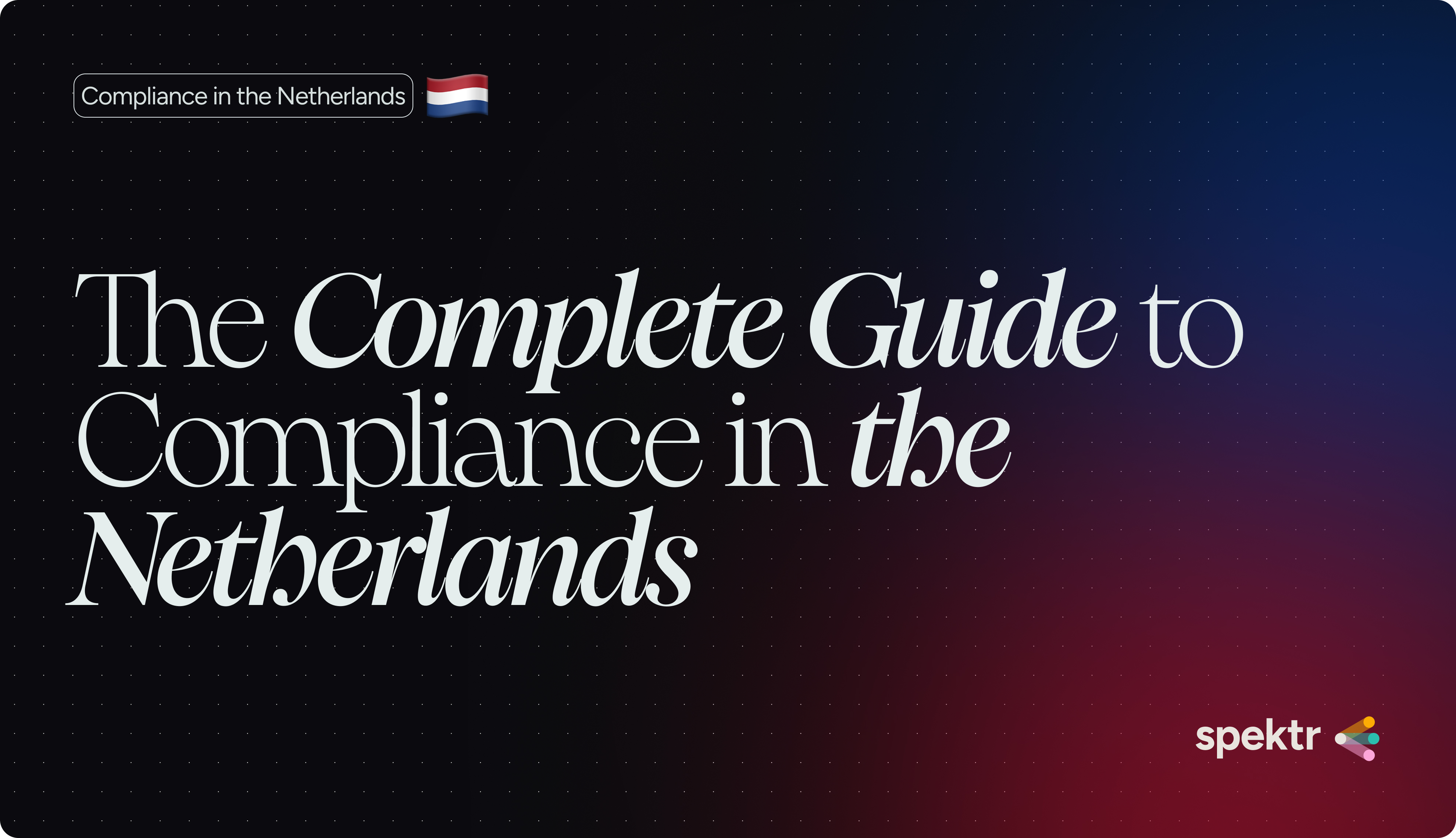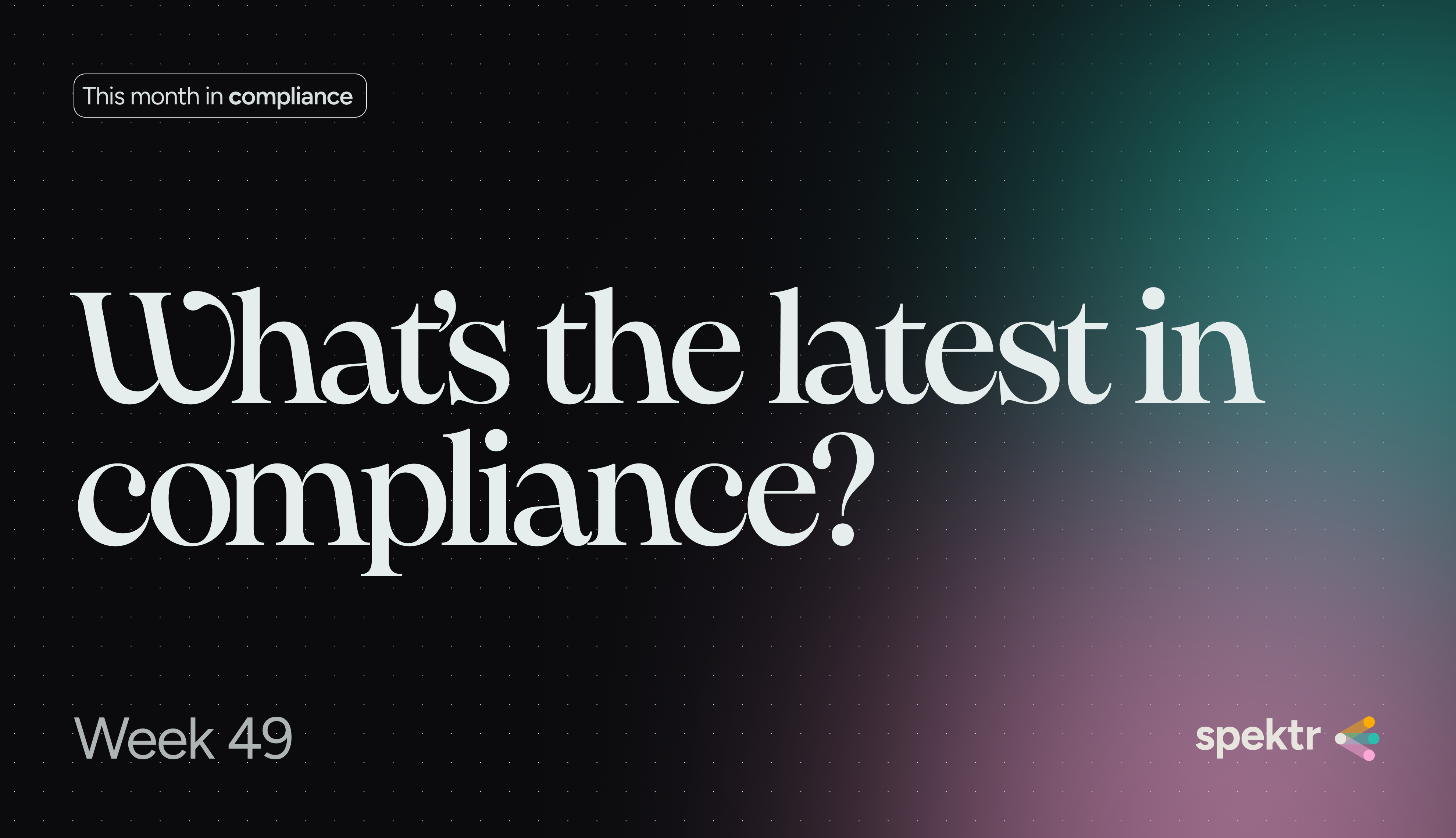Regulatory Pressures On Financial Institutions In The Netherlands
Try the platform

Share the article
The compliance landscape in the Netherlands is evolving rapidly, with new regulations and heightened regulatory scrutiny affecting financial institutions, banks, and payment service providers. Compliance teams must stay on top of emerging risks to avoid regulatory penalties and reputational damage. Below, we outline some pressing compliance challenges facing financial institutions in the Netherlands.

1. Stricter Supervision by De Nederlandsche Bank (DNB)
DNB continues to increase its focus on the integrity of financial institutions, particularly banks and payment service providers. Compliance teams must ensure they are meeting enhanced governance, risk management, and privacy standards.
One key concern is concentration risk, where a small number of dominant players could lead to market vulnerabilities. Additionally, data privacy and consumer protection remain high on the regulator’s agenda, with financial firms expected to comply with stricter oversight regarding how they handle and protect sensitive customer data.
2. New EU Anti-Money Laundering (AML) Legislation
The fight against financial crime is intensifying. The EU’s new AML regulation and the creation of the European Anti-Money Laundering Authority (AMLA) are set to introduce stricter compliance requirements across the financial sector.
For Dutch financial institutions, this means increased scrutiny on electronic money institutions (EMIs) and tighter controls on transactions to prevent illicit activity. Compliance teams must be prepared to enhance know-your-customer (KYC) procedures, monitoring, and reporting mechanisms to meet these new standards.
3. Risks of Algorithms and AI in Financial Services
As artificial intelligence (AI) and algorithms play a growing role in financial decision-making, regulatory bodies are placing more emphasis on transparency, fairness, and accountability. The Dutch Data Protection Authority (Autoriteit Persoonsgegevens) and DNB are actively assessing how AI is used in areas such as credit scoring, fraud detection, and risk assessments.
With stricter GDPR compliance requirements, financial institutions must ensure that AI-driven decisions are explainable, non-discriminatory, and auditable. Compliance teams should implement robust governance frameworks around AI usage to mitigate regulatory risks.
4. Increased Focus on Operational Resilience and Cybersecurity
With the rise in cyber threats targeting financial institutions, the EU Digital Operational Resilience Act (DORA) has introduced new security and resilience measures that organizations must comply with.
Financial firms operating in the Netherlands must strengthen their cyber risk management, incident response protocols, and third-party risk assessments. Given the sector’s dependence on cloud services and digital payments, ensuring continuous operational resilience is now a regulatory necessity.
How to Prepare for These Compliance Challenges
As regulatory expectations grow, compliance teams in the Netherlands must proactively adapt to these evolving risks. From enhanced AML rules to AI governance and cybersecurity, staying ahead of compliance challenges is critical to maintaining trust and avoiding penalties.
That’s where spektr is happy to offer a helping hand. Whether your priority is complying with PSD2, MiCA, the IPR, eIDAS 2.0, DORA or a host of other regulatory hurdles, spektr offers concrete solutions to ensure frictionless compliance.
With pre-built SDK integration, automated risk assessments, and robust identity verification solutions, spektr can help Dutch FIs and enterprises stay on top of the landscape of payments, digital identity, cybersecurity, and financial crime compliance.
Let’s talk about how we can help your organization stay ahead of regulatory changes!




